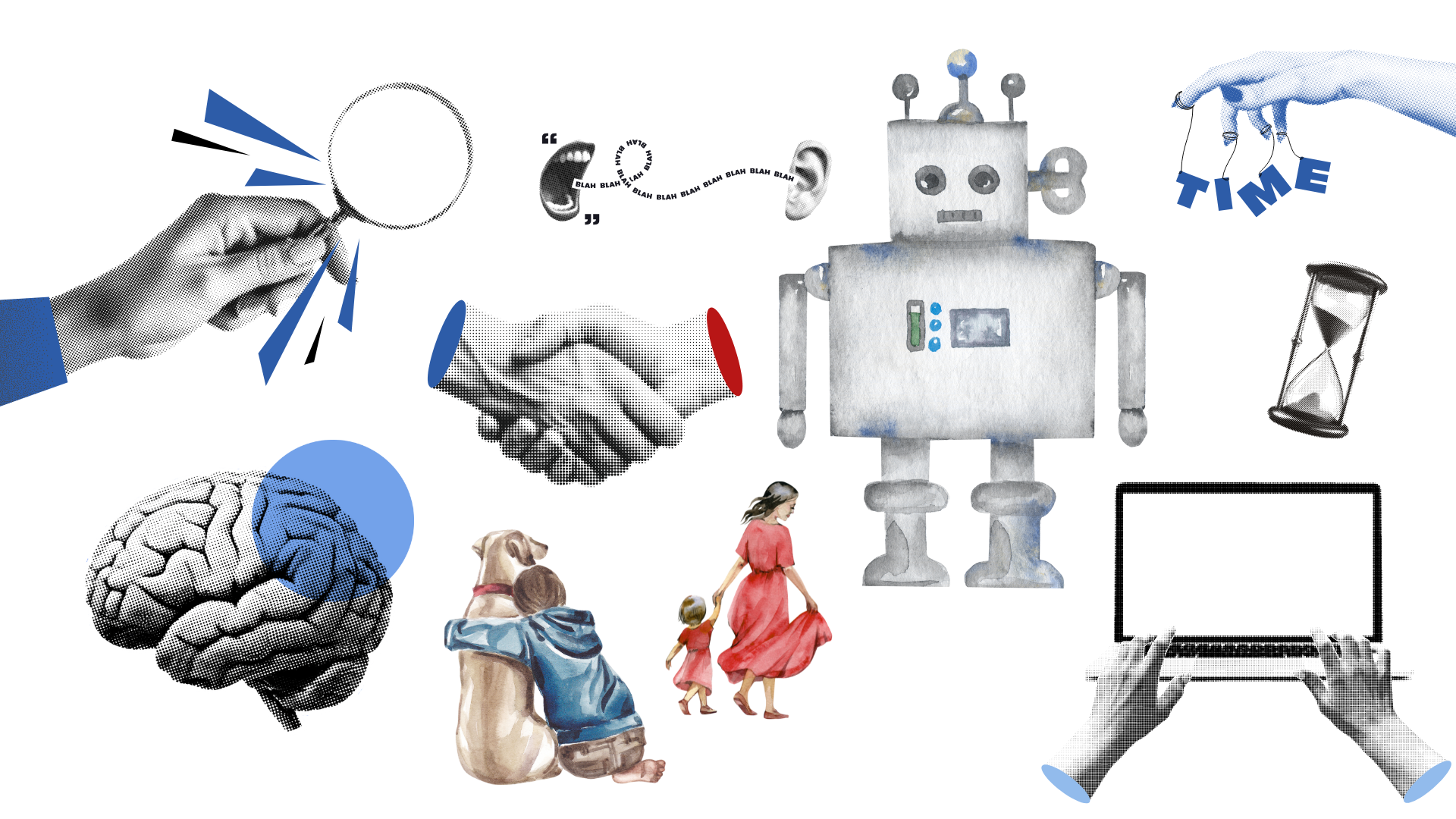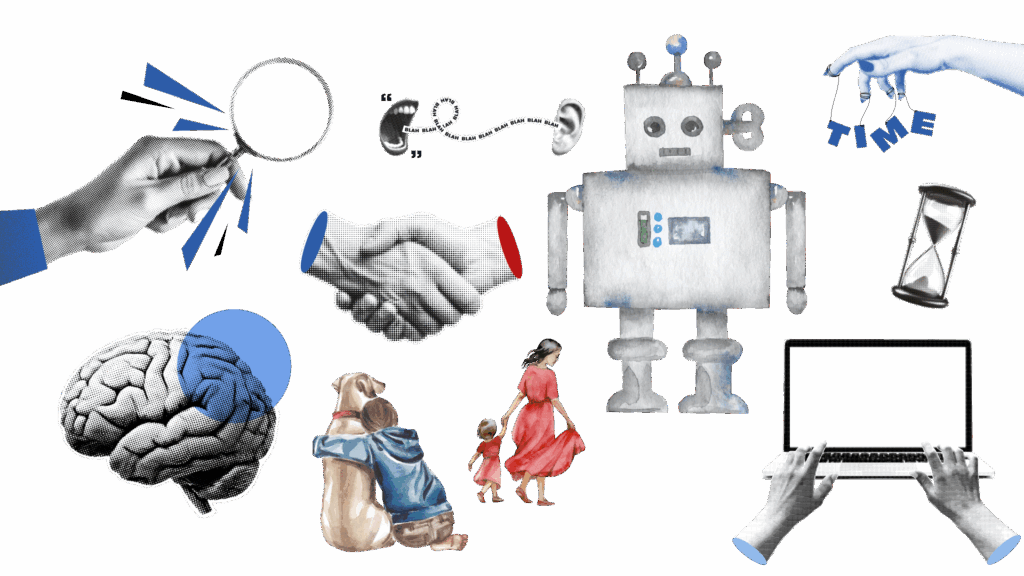The Blog
The world is speeding up and there’s a slight problem…

Culture Before Code
Pull up a chair. Let us talk about the world as it is, not as we wish it to be. Technology is not a storm that will pass. It is a new climate, and it keeps settling in. The pace is fast, and it will keep getting faster.
That is the first truth. The second truth is quieter. Most decisions about this pace are made by people who do not live your everyday life. They sit above the street where the rest of us walk. Their vocabulary is different. Their calendar is different. Their attention is aimed at places most of us never see. And yet, their choices define how your morning begins, how your data moves, how your child learns, and how your attention gets priced.
We often talk about technology as if it’s a set of tools. But what we’re really living inside is a new kind of atmosphere, one that is coded, optimized, and constantly shifting. What’s dangerous is not only the speed of change, but how invisible that change has become. So well have we adapted that we hardly notice when the ground moves. We accept updates without reading them, consent without knowing to what, and scroll without remembering why we started.
This is not a flaw in us. This is the nature of systems built for acceleration. A design choice made on a Tuesday in an office you’ll never visit can reach millions of people by Friday. Sometimes that’s a breakthrough. Sometimes it’s a fracture. Either way, the distance between idea and impact is disappearing.
Even as we’ve folded technology into the most private corners of our lives, the structures around it, meaning legal, political, ethical, have not caught up. Most laws were written in a slower time, for slower tools. Even the most progressive policies, like the EU’s Data Act and AI Act, are struggling to place boundaries around systems that redefine themselves by the month. These efforts are important. But they are drafts chasing a moving target. They are scaffolding, not shelter.
And language, too, is struggling to keep up. Words like “privacy,” “consent,” and “choice” have become unstable. What used to mean safe or sovereign now often means something negotiated deep inside a platform’s terms of service. When language starts to slide, power hides. When we cannot name what is happening, we cannot question it.
This erosion of clarity is not just a technical problem. It’s a cultural one. A societal one. A democratic one. Because most of the decisions shaping our digital lives are made in rooms where very few people sit. Executives. Policymakers. Investors. Engineers. Their tools are dashboards and quarterly forecasts. Their timelines are quarterly. Their proximity to the street-level experience is thin.
They are not villains. But they are distant.
And when distance meets speed, everyday voices fall out of the loop.
This is where culture must step in. Compliance keeps the floor from collapsing. But culture raises the ceiling. It asks better questions. It protects values that haven’t yet made it into legislation. It makes space for human consequences in a system obsessed with efficiency.
In a culture-led approach, fairness is not just about price, but about access. Who controls it. Who limits it. Who profits from it. Your access to an audience. To data. To your own history. When one company decides how you log in, what you see, and whether you can leave without losing your past, that company is not just a business. It is infrastructure. It is architecture. It shapes the street where everyone walks.
That’s why the most important rules being written today, especially in Europe, are not just about what you buy, but about the gates you pass through. The EU’s Digital Markets Act, for instance, is a direct attempt to regulate gatekeepers. Because if the gate is fair, smaller players can build. If the gate is too narrow, a few hands shape the whole square.
Understanding this moment doesn’t require a technical degree. It requires a way of seeing.
Start by listening to the verbs. When you hear scale, automate, optimize, accelerate, pause. Translate. Scale means more people will feel it, fast. Automate means a machine will make decisions. Optimize means someone defined a goal, and the whole system was pointed at it. Accelerate means the side effects will come sooner too.
Then look at defaults. Most people live on default settings. Defaults are invisible policy. If something is set by default, most people will leave it as is. That’s where real power lives.
Finally, pay attention to exits. A fair system lets you leave without losing your history, your access, your dignity. If it’s hard to leave, you’re not a user, you’re a captive! None of this is reason for panic. But it is a reason for attention. I know it might feel scary, but your data is so important.
We live in a climate that moves quickly, but humans do not. We need rhythm, not whiplash. Our nervous systems, our institutions, our relationships, they evolve in cycles, not sprints. When we feel overwhelmed, that’s not a weakness. It’s a clue. The systems we’ve built are fast, but not yet wise.
So what do we do? We stay awake. We ask questions that do not fit inside a dashboard. We demand words that still mean something. We protect the right to pause. We make choices that widen our lives, not narrow them.
Governments and companies have work to do. They must build policies that travel with the person, not the platform. Data should not vanish when you switch services. Health records, education records, purchase histories, these should belong to you, not to the tools you use.
They must also create honest on-ramps. When new systems are introduced, the explanations should fit the life of a shop worker, a teacher, a small business owner: not just a boardroom. If only the top 1% can understand the implications, the rest of us are being governed without consent.
And maybe most importantly: there must be a right to quiet. Not a ban on technology. But legal permission to step back. To set limits. To be unreachable for a time without penalty. To let our thoughts belong to us again.
We did not choose this climate. But we can choose how we stand in it. We can bring culture to the table.
You don’t need to master code to shape the future. You need to stay awake to the systems that shape you. Ask who benefits. Ask who risks. Ask how to leave. Choose tools that make your life wider. Use words that hold their meaning.
Then act. Quietly, steadily. From table to table.
That is how culture moves.
I hope this initiated something within you.
Love,
Meer
